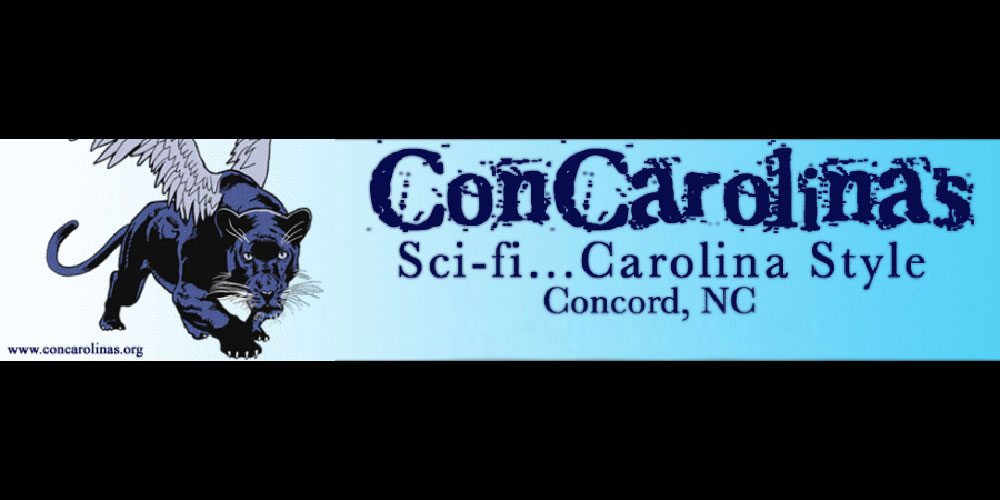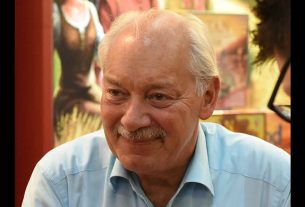Luke Skywalker: “You fought in the Clone Wars?”
Ben Kenobi: “Yes. I was once a Jedi Knight, the same as your father.”
Back in 1977 — and over the quarter century or so which followed — that’s pretty much all we learned about this galaxy-wide conflict that predated everything we knew (or thought we knew) about Star Wars.
Thirty-some years later those once-untold stories are a big hit with a new generation of fandom, and as Star Wars: The Clone Wars heads into its third season on Cartoon Network, the series’ supervising director, Dave Filoni, sat down at Star Wars Celebration V for an interview with GeekDad.


Clone Wars supervising director Dave Filoni. Image: Jim Carchidi
GeekDad: You’re a first-generation Star Wars fan –
Dave Filoni: I was about four when it came out.
GD: – so, what’s it been like creating something that works in that gap that when we were kids, there’s this passing mention of The Clone Wars, and now you are filling in that gap, you’re playing in that playground.
DF: Very bizarre. It’s hard to comprehend. When I watch that scene now in A New Hope, it takes me a moment to realize, “Wow. That’s my job.” My job is describing in great detail what Obi-Wan Kenobi is actually talking about.
The reason I can actually deal with it is that George Lucas is the one that’s working with me to come up with the stories and guide everything that we do. I know it sounds strange, but I wouldn’t be as thrilled about it if it was just me doing it on my own. Because I grew up with the respect for Lucasfilm and for everything George has accomplished, I’m so glad that he’s so involved in this show. Star Wars is his, and I firmly believe that he’s the only one that knows that secret formula for getting that effervescent action feeling of comedy, drama, and thriller that Star Wars really is. I’m just trying to learn from him as much as I can about how to get that feeling so that I can pass on to kids and families now what it was that, when I sat in that theater in ’77, just grabbed all of us.
And remember: We didn’t know what the Galactic Empire was. We didn’t know what Jedi were. An X-wing, a TIE fighter, a Rebel Alliance – none of it really meant anything other than Good Guy and Bad Guy.
But there was something about that first film, especially to me, that when Luke is going down the trench and he hears Obi-Wan say, “The Force will be with you,” I mean, people got up and cheered. How many movies have you been to in the last ten years where people did that? It’s so rare, and that moment, you know, that’s really driven everything that came after it, even to have us all here this weekend, gathered to celebrate Star Wars.
That moment, and the moment where Obi-Wan talks about the Clone Wars to Luke, that moment resonated with everybody, so much so that people wanted to see a series about what that time period was, because it made us think, “Wow, there’s a much bigger universe here.”
It’s like growing up and hearing a story about your dad that he was a war veteran or something. And around the time when I was a kid, a lot of dads were. And again, you look at cultural touchstones and why Star Wars resonated, and I think it became a talking point for a lot of families and kids, and a way to relate.
That’s a long answer for you, but I think you’ll find I’m very long-winded. But I think it all figures in to why the Clone Wars series is effective now, and how I approach what I do.
GD: I’m glad you went in that direction, because that’s one of the things I was wondering: You’ve got kind of this interesting challenge of this balance between the Star Wars universe and kind of crossing over (generational appeal). When I went to see Phantom Menace, I knew I wasn’t six years old anymore. I wasn’t going to be seeing it with the same eyes as that kid who was going in to see this for the first time. But you’re making a show that six-year-olds and parents who were six years old when they saw Star Wars are going to be watching.
DF: Yes. Very difficult.
GD: What’s that like, trying to think, you know, on the one hand, a six-year-old is going to love this, but I know his dad’s a Star Wars fan, and he’s going to be watching it too.
DF: It’s funny. The way that I’ve dealt with that is to go back to A New Hope, because there is something about that movie, which is the first one – not chronologically, but you know – it’s the first one that captivated six-year-olds and 45-year-olds. My dad liked Obi-Wan Kenobi. He wasn’t a super fan, but he liked opera, and there were a lot of things that related to him and related to me.
For us to be successful with this series, I keep trying to keep the crew in the mindset of, “You’re developing a show the year before Star Wars comes out. Don’t count on people knowing what a Jedi is. Don’t rely on them understanding how the Republic works. And that’s something I tell the writers, too. And something George has really impressed upon me is that you should be able to watch any episode of The Clone Wars, whether you’ve seen every episode of it, or hardly any episodes of it, and be able to follow the story we’re telling and enjoy it.
I think that’s the key to everything in Star Wars. How come all six films did so well in the theater? What is the magic George has of captivating an audience? You’ll find fans that are super-critical of those prequels, and yet you’ll find fans that are super-devoted to them as well. And you know, that’s hitting exactly what you’re talking about. These older fans and the new fans, and the older fans now coming at it from an older perspective, and they want all the things to be aged up and darker and more violent, and I have gotten on this show, “Dave, why do you make it so much for kids?” and I say, “How old were you when you first saw Star Wars?” and they’ll say, “I was six,” and I’m like, OK: I’m not making this directly for kids, I make it for everyone, but it is a fantasy world of laser swords and TIE fighters, and I think kids love that stuff, like you did. But as a fan myself, and older, I have done admittedly, some things I think are intense and exciting in a way that we’ve all evolved as a storytelling society.
GD: Without getting too specific, as far as coming up with individual stories and story arcs, is there a larger arc you’re always working within, or do you take them piece by piece and then say, “Where can we fit this into (the big picture),” or do you come from the perspective of “This is what we’re looking at, and right now, we are at this point here.”
DF: I have two points: Attack of the Clones and Revenge of the Sith. I know that’s where we’re starting and that’s where we’ve got to hit. The story ideas are all generated by George Lucas directly. He comes in and says we’re going to do this story and we’re going to do this story. George has a way of being so expressive with the stories he wants to tell. He’s never afraid to say, “Let’s do this kind of story. He’s almost experimenting with style. Like the Zillo Beast episode: I never thought we’d do an episode with a Godzilla-sized monster attacking Coruscant, and yet we did.
GD: And it was a pretty good episode.
DF: It was fun, right? And that’s the thing about it that I’ve learned from George. You know, would that have been the first choice of many fans, to say, let’s put that in the Clone Wars? I would say probably not: They would think, no, it’s going to be a constant battle between the droids and the clones. But George has this way of seeing through that and just telling great stories, and we work very hard to tell those stories.
Now, I do have a timeline where I’m constantly placing episodes and saying “Here’s this one and here’s this one, and we’re about this far into the world.” And the way I measure it constantly is with Ahsoka and (Captain) Rex. And some episodes, you might have noticed, have aired out of sequence. We’ve had prequels air and sequels air, and the further we go with the series, we actually get away from that. We start moving in a very linear fashion with the characters.
But you can tell mostly where the series is at by paying attention to Ahsoka and how she behaves. Is she being really bratty and using a lot of nickname-y things and driving Anakin nuts, or is she becoming more respectful and saying “I’m sorry,” and “I’ll try to do better, Master,” and becoming a more capable fighter? These kind of things really show you – that’s how I keep measuring where we are at. And eventually the fans will become very aware of the timeline that we have.
It’s a complex arrangement, The Clone Wars, to be sure, but I’m glad that it’s become way more than just battle droids versus clones. That could only get you so far.
And you know, to look at it a different way, I could do a whole series just about Captain Rex, Cody and the clone troopers, like a Band of Brothers. I could do a whole series just on the different Jedi, and how they react to the war. I could do a series just about the bounty hunters, and how they’re trying to survive during this massive warfare, like Hondo and the pirates, that could be its own series. Boba Fett could be his own series. Within this one show, we have all these awesome characters fighting for screen time, and I think what that does is keep the series fresh all the time, and alive, and people are always wondering: Who am I going to see next? And in season three, you’re going to be surprised who you see. I’m very excited about that.
This interview took place before Filoni’s big-reveal weekend panels at Celebration V, so if you want to see a bit of what he was talking about toward the end there, I’d suggest you first watch the trailer for Season Three and then check out the StarWars.com write-up on the presentations. The series’ new season premieres Sept. 17 on Cartoon Network.


